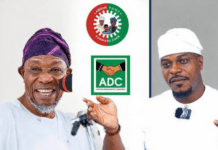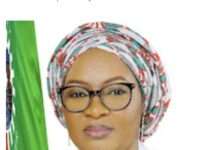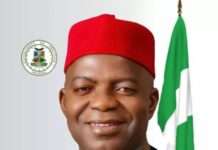What Nigerian Politicians Should and Should Not Do While Waiting for the Next Election Cycle
In the dynamic landscape of Nigerian politics, the period between elections is just as critical as the elections themselves. How politicians conduct themselves during this time can significantly impact their credibility, relevance, and future electoral success. This article outlines practical steps Nigerian politicians can take and pitfalls they should avoid while waiting for the next election cycle.
What Nigerian Politicians Should Do
- Engage with the Community
Politicians must remain connected with their constituents by:
Visiting communities to understand and address pressing needs.
Organizing town hall meetings to gather feedback and provide updates on ongoing projects.
- Implement Grassroots Development Projects
Actions speak louder than words. Politicians should:
Invest in small-scale projects like school renovations, healthcare centers, and boreholes.
Launch empowerment programs for youths, women, and small business owners.
- Advocate for Policy Reforms
Even outside office, politicians can remain relevant by:
Advocating for progressive reforms in areas like education, healthcare, and economic development.
Supporting legislative changes that promote good governance and transparency.
- Build Political Alliances
Politics is about relationships. Politicians should:
Strengthen ties within their party and build bridges across political divides.
Collaborate with civil society groups and community leaders to drive development.
- Educate and Mobilize Voters
Civic education is crucial for strengthening democracy. Politicians should:
Raise awareness about voter registration and participation.
Organize workshops on the importance of civic engagement.
- Maintain a Strong Public Image
Consistency in public relations is key. Politicians should:
Use social media to share achievements and interact with followers.
Attend community events to remain visible and relatable.
- Focus on Personal Growth
Leadership requires continuous improvement. Politicians should:
Attend training programs, seminars, and conferences to refine their skills.
Mentor young leaders to ensure a legacy of excellence in governance.
- Support Current Government Positively
Constructive opposition is essential for democracy. Politicians should:
Offer well-reasoned criticism of policies without undermining governance.
Collaborate on initiatives that benefit the public.
What Nigerian Politicians Should Not Do
- Engage in Corruption or Mismanagement
Misuse of public funds erodes trust. Politicians must avoid:
Diverting resources meant for development.
Engaging in fraudulent or unethical practices.
- Disappear After Elections
Constituents expect continuity. Politicians should avoid:
Abandoning their constituencies after elections.
Breaking campaign promises without accountability.
- Fuel Divisiveness or Violence
Peace is non-negotiable. Politicians should not:
Incite ethnic, religious, or political conflicts.
Use hate speech or inflammatory rhetoric to gain support.
- Focus Solely on Personal Gain
Self-interest destroys credibility. Politicians must not:
Prioritize personal businesses over public service.
Exploit public resources for private or partisan purposes.
- Sabotage Opponents or Incumbents
Healthy competition strengthens democracy. Politicians should not:
Spread misinformation about rivals.
Undermine ongoing projects for political advantage.
- Ignore Grassroots Needs
Grassroots support is the foundation of political success. Politicians should avoid:
Neglecting rural areas or imposing irrelevant projects.
Overlooking the real needs of the people.
- Over-Promise and Under-Deliver
Honesty is key to building trust. Politicians must not:
Make unrealistic promises they cannot fulfill.
Abandon initiatives halfway due to lack of planning.
- Engage in Political Thuggery
Violence has no place in democracy. Politicians should avoid:
Sponsoring thugs or engaging in intimidation tactics.
Instigating unrest to gain political leverage.
- Neglect Party Structures
A strong party is crucial for electoral success. Politicians must not:
Sideline loyal party members.
Ignore grassroots mobilization within the party.
- Abandon Mentorship
The future of politics depends on mentorship. Politicians should not:
Hoard knowledge or discourage younger leaders.
Fail to inspire and groom the next generation of political actors.
Final Thoughts
The time between election cycles is an opportunity for politicians to showcase their commitment to service, build trust, and solidify their relevance. By focusing on community engagement, grassroots development, and ethical governance while avoiding divisiveness and corruption, Nigerian politicians can strengthen democracy and leave a lasting legacy.
The future is built today, not just during the campaigns. Let actions, not just words define leadership.










